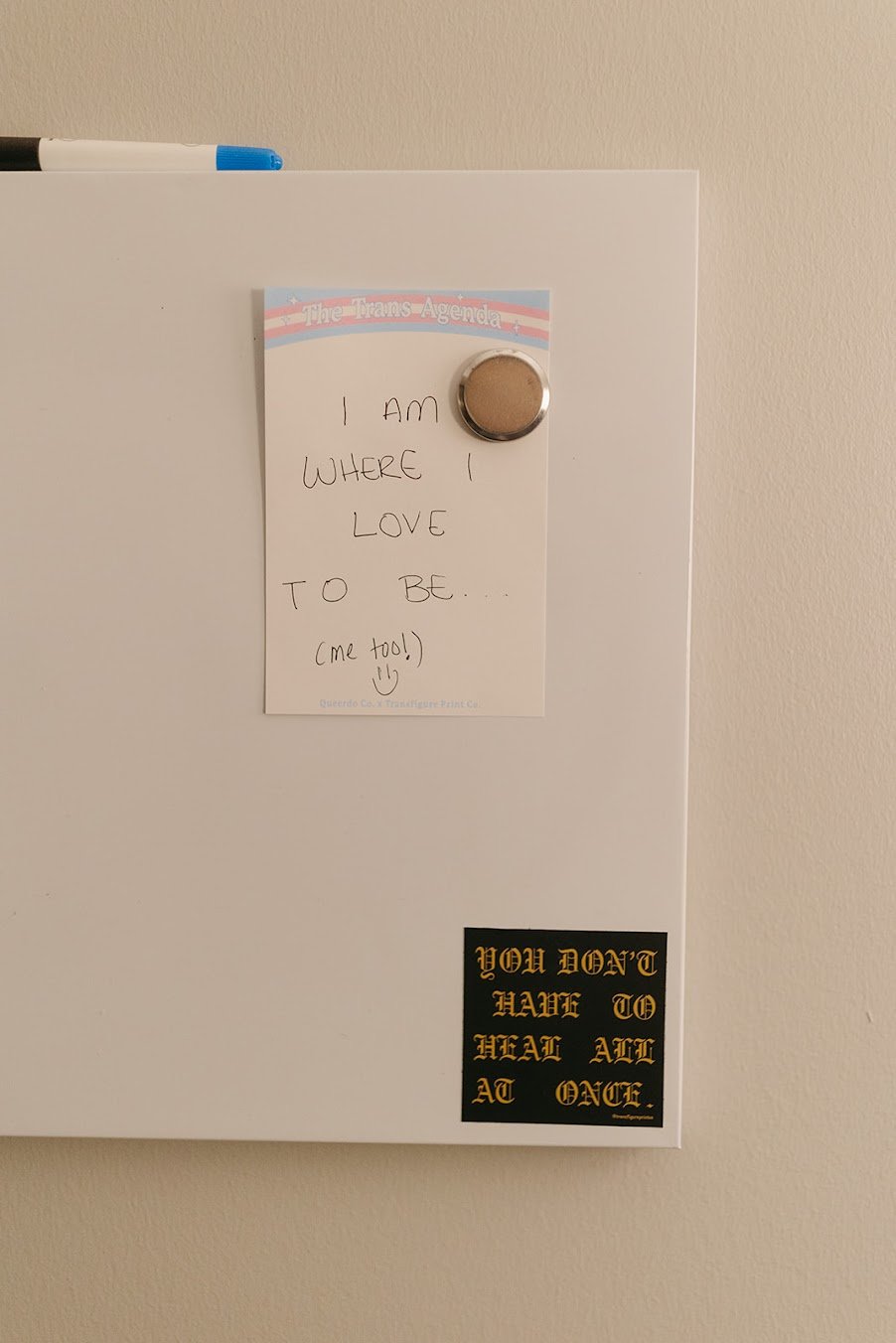
Family Therapy
Many families carry unspoken rules, suppressed trauma history, and unexpressed needs. Unfortunately, most families are not given a step-by-step guide on conflict resolution, how to navigate life transitions, or how to repair relational ruptures. Circumstances such as these are examples of times where family therapy can be most supportive. At Grounded Wellbeing, we recognize the influence familial relationships have on one’s sense of self and identity. As an attachment-focused practice, we aim to help new families start off on a solid foundation and existing families address old wounds so they can thrive. We believe that the foundational relationships within families are deserving of care and attention. Family Therapy at Grounded Wellbeing offers you a compassionate environment where your family can reimagine and revise the unhelpful rules, boundaries, and structures currently in place, ultimately cultivating an intimate relationship where vulnerability, authenticity, and community thrives.
We know that families come in all shapes and sizes - that’s why we consider the intersectional needs of the families we work with to develop treatment plans that consider the unique strengths and needs of each member. We also recognize that families are not static. Transitions of all kinds can influence and reshape families. Whether you are introducing a new sibling, working through the process of divorce, grieving the loss of a loved one, or supporting a family member in coming out or transitioning, we are here to provide a place of safety and stability for your family. Our therapeutic approach recognizes that our clients are not only impacted by their relational concerns but also impacted by the oppressive systems that typically co-exist with intersecting identities. Our skilled therapists provide a compassionate and affirming environment where your family system can explore its strengths and challenges whilst attending to the diverse intersections such as gender, race, sexuality, disability, neurodivergence, and more.
Types of Family Dynamics Treated
Minor child(ren) and parent(s)
Adult child(ren) and parent(s)
Adult family members with strained relationships
Blended families, nontraditional family structures
Navigating divorce and co-parenting
Navigating adoption, foster care, and social service encounters
Dealing with grief and the loss of a family member
Supporting a family member in coming out or transitioning
Emotionally Focused Family Therapy (EFFT) is an attachment-focused method of treating insecure attachment patterns that can lead to dysfunction in families and other mental health problems. [1] In this model, the therapist works with the family to develop skills for healthy communication where all family members can feel safe to express their emotions. By addressing the underlying emotions that can lead to ineffective communication patterns, families can reduce negative interactions and repair insecure attachments. [2] Parents can begin to feel more confident in their parenting approaches and children will feel heard, validated, and understood. [3]Through collaborative insight exploration and experiential practice, we will assist your family in identifying its patterns of disconnection, accessing the innate relational skills you already possess, and moving forward towards relational intimacy. Family therapy at Grounded Wellbeing aims to help you build a robust tool kit of relational skills that empower your family during this wild roller coaster called life ultimately coming out on the other side equipped to navigate life transitions, repair relational wounds, and cultivate a shared vision for a harmonious familial system.
Emotionally Focused Family Therapy (EFFT)
Virginia Satir’s view of family therapy focuses on helping family members recognize their own power, the structure of family dynamics, and the strengths of the individuals and relationships within the family. [4] The Satir model aligns with our attachment-focused therapeutic approach as it helps families develop a deeper understanding of how their communication and relational patterns impact their wellbeing both within and outside the family system. [5] Within this model, the therapist focuses on empowering the family to explore choices that lead to growth and change.
Satir viewed individuals and relationships through the metaphor of an iceberg with behaviors and coping strategies as the visible “tip of the iceberg” with feelings, sensations, beliefs, and concepts of self as the larger, underlying factors that sit below the surface.[6] By incorporating mindfulness and spiritual practices in sessions, Satir therapists can help each family member uncover hidden strengths that can lead to positive change. We look forward to the opportunity in collaborating with your family to cultivate a familial dynamic that feels safe, affirming, and full of infinite possibility.
Satir Model
References
Conradi, H. J., Meuwese, D., Rodenburg, L., Dingemanse, P., & Mooren, T. (2023). Effectiveness and feasibility of structured emotionally focused family therapy for parents and adolescents: Protocol of a within-subjects pilot study. PloS one, 18(6), e0287472. https://doi.org/10.1371/journal.pone.0287472
Foroughe, M., Stillar, A., Goldstein, L., Dolhanty, J., Goodcase, E.T., Lafrance, A. (2018). Brief emotion focused family therapy: An intervention for parents of children and adolescents with mental health issues. Journal of Marital and Family Therapy 45(3). https://doi.org/10.1111/jmft.12351
Yildirim, N. (2021). The Updating in Satir’s Family Therapy Model. European Journal of Multidisciplinary Studies 6(2).
Averbeck, A. (2024). The Satir model. In Marriage and Family Therapy: A Practice-Oriented Approach pp. 163-185.
Lum, W. D. (2000). The lived experience of the personal iceberg metaphor of therapists in Satir’s systemic brief therapy training (T). University of British Columbia. https://open.library.ubc.ca/collections/ubctheses/831/items/1.0089447

